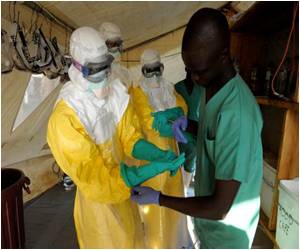The world must respond with a major scale-up for the Ebola crisis in West Africa, and should include military flights for delivering supplies, US lawmakers and leading doctors said Thursday.

"The problem is that unless we have a massive scale-up of resources in the form of hospital beds, personnel, equipment, we are not going to be able to control this," said Anthony Fauci, director of the National Institute for Allergy and Infectious Disease.
"We need to do something at a much higher scale that we are doing now," he said in an interview with AFP.
"We are going to need thousands of more people, thousands of more beds," Fauci said.
"We probably will need some sort of military presence -- not with guns -- but military that have logistic capabilities of flying equipment in and out, this kind of thing."
Fauci said discussions are under way among top officials worldwide regarding how to contain the epidemic, which has fast become the largest Ebola outbreak in history.
Advertisement
The Bill and Melinda Gates Foundation this week also committed $50 million to UN agencies and international organization involved in the emergency efforts.
Advertisement
The virus only spreads among people in close contact with the bodily fluids of those infected, and most developed nations can sufficiently isolate the sick in order to ward off Ebola's spread.
However, high-income countries have "three compelling reasons to help," they urged, citing humanitarianism, global justice and the ethics of sharing benefits from research.
In the US Senate, Christopher Coons, chairman of the subcommittee on African Affairs, called on President Barack Obama to designate a point-person for managing the US response.
"We must begin to deploy United States military support to the maximum extent possible," he added.
He praised the announcement earlier this week that the United States would be establishing a new hospital facility in Liberia.
"But I'll admit, I'm concerned it will take weeks to deploy, Coons, a Democrat, said on the Senate floor."
"This is not everything we can and should be doing. We need to build more field hospitals, for civilians in Liberia and beyond, so that there are facilities for health workers and civilians fighting the disease."
Coons also called on private citizens and international organizations to give whatever they could to the response effort.
Source-AFP










